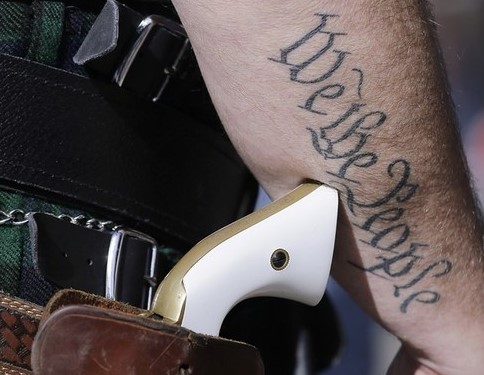By Cam Edwards
May 6, 2021
-Bearing Arms
It looks like the Lone Star State will be the 21st in the nation to adopt Constitutional Carry, and the fifth state to do so since January of this year. On Wednesday, the state Senate gave its approval to HB 1927, which would remove the requirement that legal gun owners obtain a concealed handgun license before they can lawfully carry a firearm.
The 18-13 vote was the last major hurdle for the legislation, which now heads back to the House for a concurrence vote before its sent to Gov. Greg Abbott. The governor has already said he’ll sign the legislation if it gets to his desk, which means that the odds are overwhelmingly in favor of the bill becoming law as early as next week.
Proponents of what Republicans call “constitutional carry” argue that Texas should follow the lead of at least 20 other states with similar laws on the books. Meanwhile, gun control advocates are sounding the alarm about making it easier to carry firearms after repeated instances of gun violence — including 2019’s massacres in El Paso and Midland-Odessa.
Under current state law, Texans must generally be licensed to carry handguns openly or concealed. Applicants must submit fingerprints, complete four to six hours of training and pass a written exam and a shooting proficiency test. Texas does not require a license to openly carry a rifle in public.
“This bill, to me, is a restoration of the belief in and trust of our citizens,” said state Sen. Charles Schwertner, R-Georgetown, who is carrying the legislation in the upper chamber. “We cannot allow another session to come and go where we pay lip service for the Second Amendment by failing to fully restore and protect the rights of citizens granted by the Constitution.”
The bill’s fate remained uncertain heading into debate on Wednesday morning and led to a rare case of the GOP-controlled Senate taking up a bill with unclear odds at passage. Ultimately, every Republican supported the bill, but a handful of key senators admitted in debate that they reservations about certain provisions — namely a lack of support from law enforcement.
Some police chiefs and law enforcement organizations have indeed come out in opposition to the Constitutional Carry bill, but given the fact that, even before the wave of Constitutional Carry laws that we’ve seen this year, more than a dozen states have had these laws on the books for some time, and not a single state has moved to repeal the law and move back to a “shall-issue” only system.
Besides, the objections from some police in Texas to Constitutional Carry sound really similar to the complaints by some former police in South Carolina to a bill that would allow for open carry with a concealed carry license. Politically appointed police chiefs in Democrat-controlled cities tend to object to any expansion of the right to keep and bear arms, but my guess is that the rank-and-file officers have a very different point of view on the subject.
The passage of Constitutional Carry in Texas may be one of the biggest surprises of the year in terms of pro-2A legislation. Gov. Greg Abbott threw his support behind Second Amendment Sanctuary legislation before this year’s legislative session began, but he didn’t publicly embrace Constitutional Carry until a few weeks ago when the House was poised to pass the bill. Lt. Gov. Dan Patrick had expressed doubts that the bill had enough support in the Senate as recently as last week, but when the roll call was held on Wednesday, every Republican senator ultimately voted in favor of the legislation.
The right-to-carry revolution is still making progress across the country, and Texas joining the ranks of the Constitutional Carry states would be a huge step towards the full recognition of the right to keep and bear arms. We’re not quite at the finish line yet, but it is in sight and it looks like the biggest hurdles for the bill have now been overcome.




